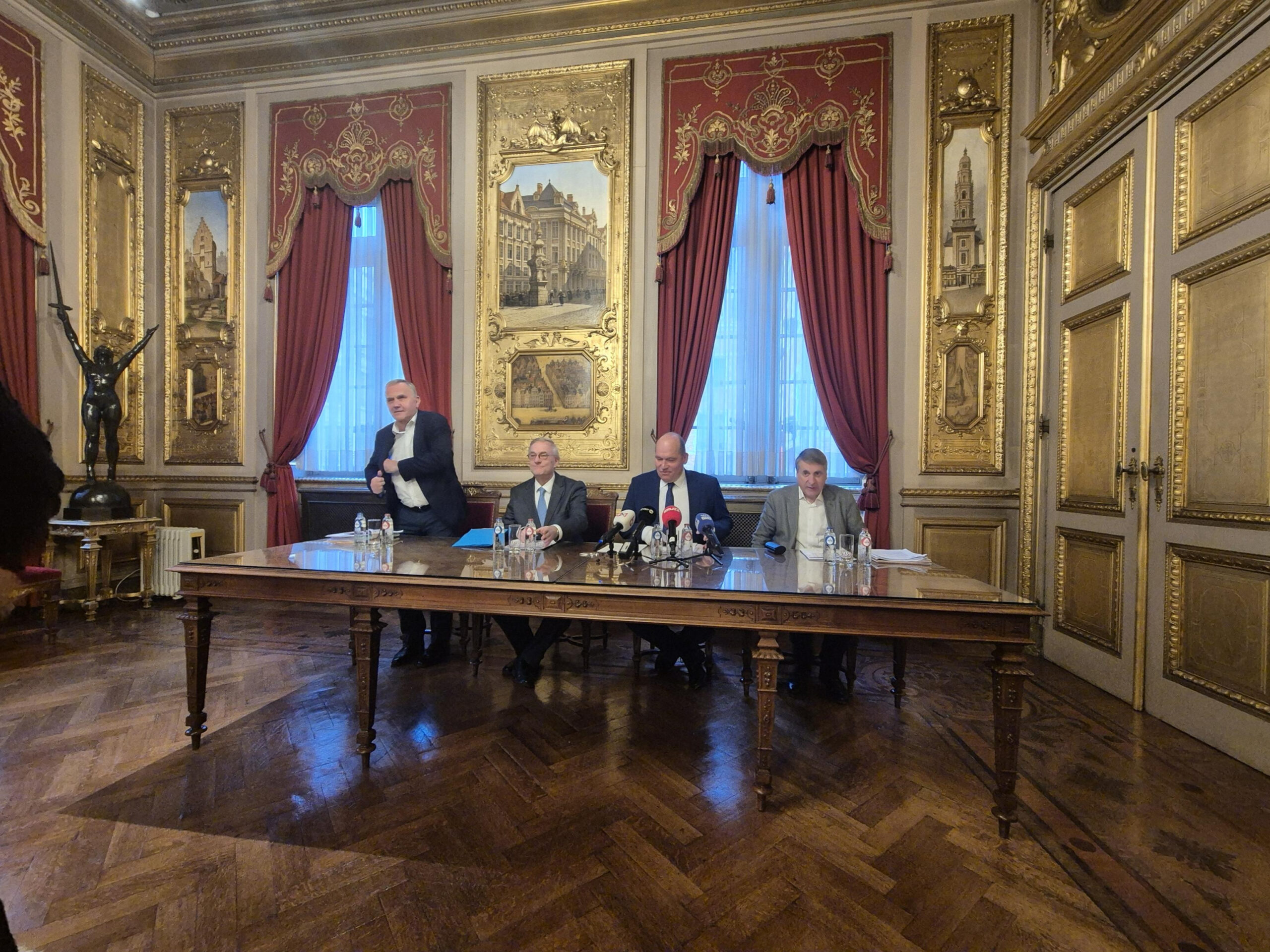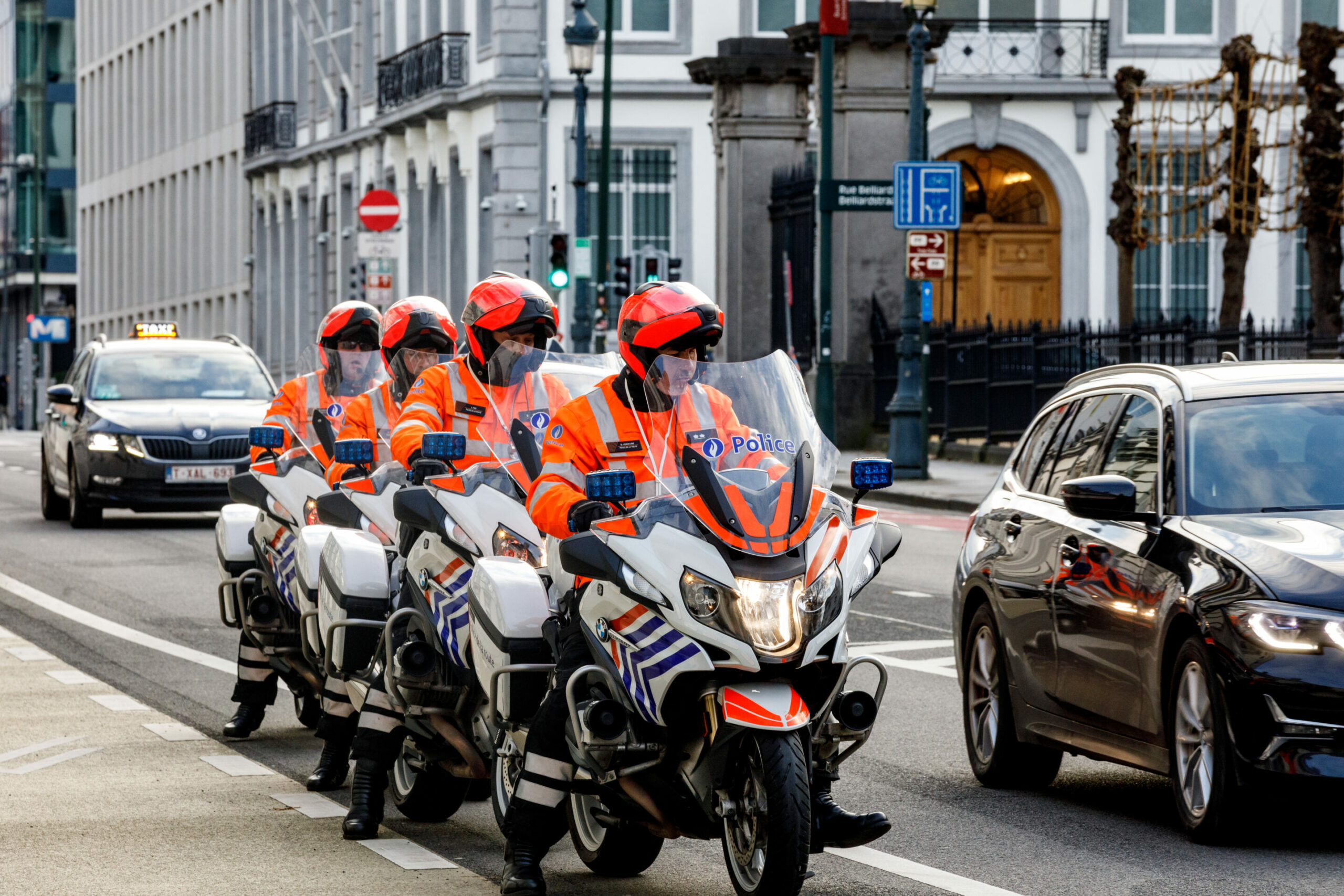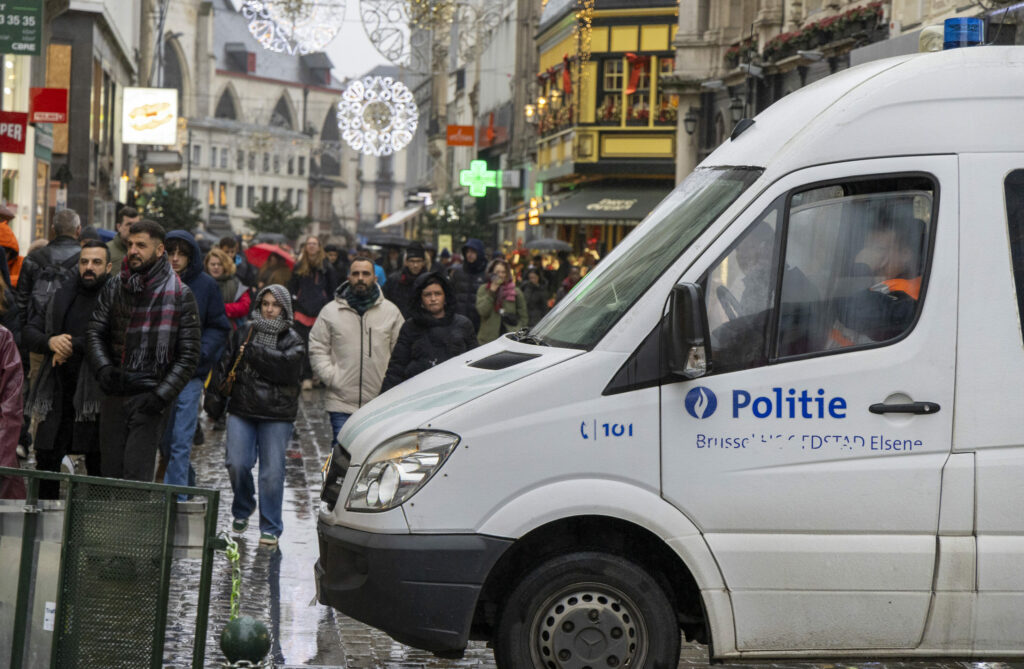All 19 Brussels mayors reiterated their strong opposition to a police zone merger in the Belgian capital during a press conference on Wednesday.
Brussels has six police zones and the question of merging them into one centralised force has gained prominence in recent months. The mayors of all 19 communes in the Brussels-Capital Region are against it.
"We would never hesitate if we thought it would improve things," said City of Brussels Mayor Philippe Close (PS), explaining that no reform is "taboo" but "slogans" will not resolve the city's policing issues.
Close was joined by mayor of Etterbeek Vincent de Wolf (MR), mayor of Woluwe-Saint-Pierre Benoit Cerexhe (Les Engagés) and mayor of Woluwe-Saint-Lambert Olivier Maingain (formerly DéFI).
"There is no added value in merging," added De Wolf. "Our position is unanimous."

L-R: Woluwe-Saint-Pierre mayor Benoit Cerexhe, Etterbeek mayor Vincent De Wolf, City of Brussels mayor Philippe Close and Woluwe-Saint-Lambert mayor Olivier Maingain on 22 January 2025. Credit: Belga / Timon Ramboer
Drugs should be tackled nationally, not locally
Brussels experienced a rise in shootings in 2024. The issue of insecurity dominated political campaigning ahead of elections in June and October last year. The collective of mayors acknowledged these issues but also sought to reassure the public that the current policing system is "operational and efficient".
They pointed to numerous instances that prove the success of pre-existing collaboration between police zones. A 'gold commander' has presided over interzone cooperation since 2017, and the unit was deployed during the Papal visit in September and to manage public disorder on New Year's Eve.
In their view, underfinancing of federal police forces is at the root of the problem. These forces are too stretched to execute their duties and local police are forced to intervene in cases of human or drug trafficking, which are beyond their remit.
"Phenomena linked to drug trafficking are a federal responsibility," said Maingain.

Credit: Belga / Hatim Kaghat
They argue that the KUL norm, established in 1999 to calculate how many officers were necessary in each zone, is out of date (there is currently one police officer per 4,000 Brussels residents.) The norm must be reformed in order to prevent further underfunding, which the mayors argue could rise to half a billion euro in the next six years.
The 19 mayors have also called for the preservation of a solidarity mechanism that grants each zone €7 million in annual funding from the Federal Government.
The question of a police zone merger has cropped up in Brussels government formation talks, which has likely prompted the mayors to reiterate their opposition to the measure.

